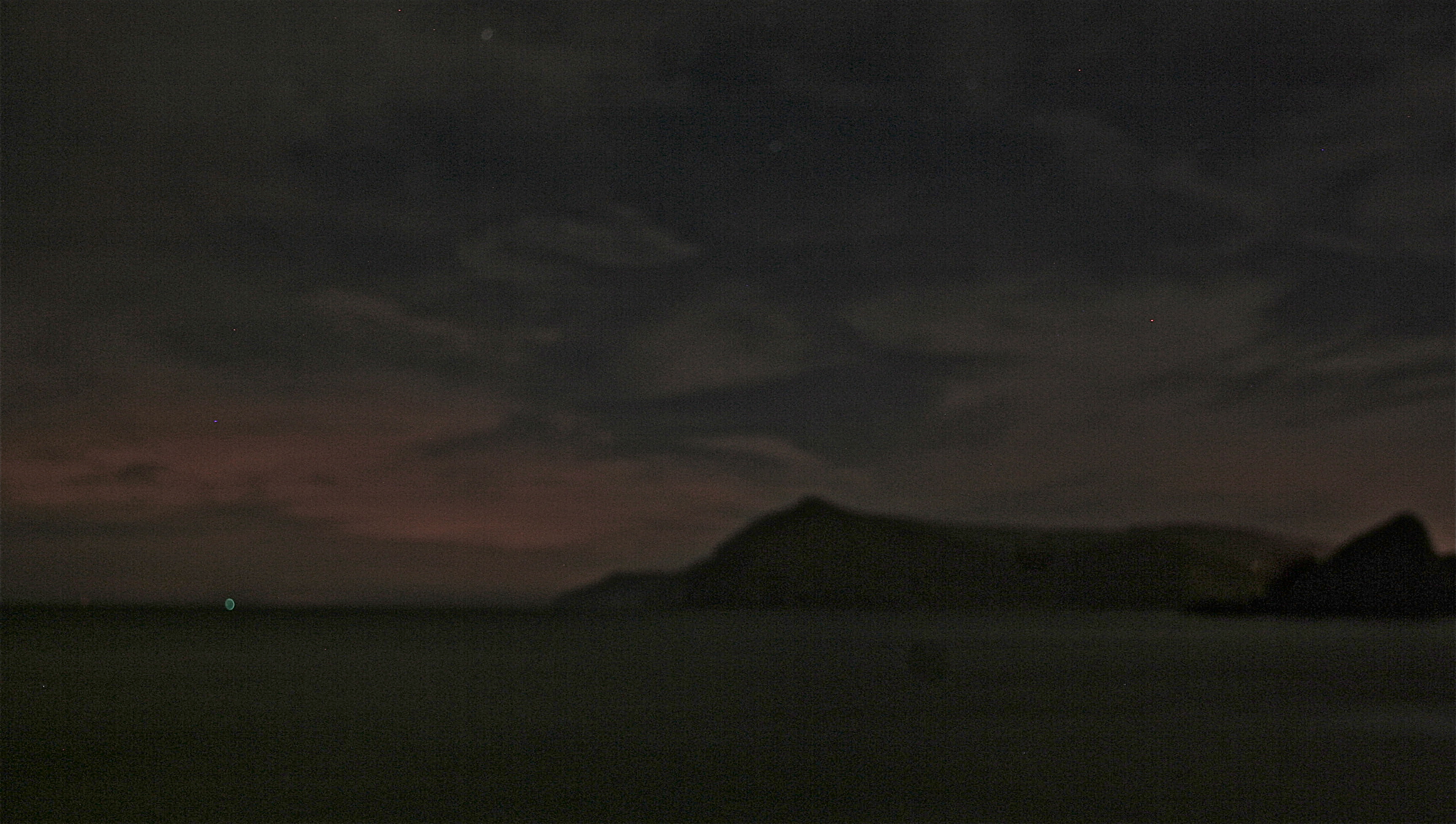 The shortest day has been and gone and we have that interlude before the New Year gets underway; though nature has already turned the corner ahead of mans timelines. The last few days have seen benign weather; mild and damp with misty days. This passing of the year can be a time for contemplation and I often cast my mind back to winters of the past and in particular days and nights spent beside the water.
The shortest day has been and gone and we have that interlude before the New Year gets underway; though nature has already turned the corner ahead of mans timelines. The last few days have seen benign weather; mild and damp with misty days. This passing of the year can be a time for contemplation and I often cast my mind back to winters of the past and in particular days and nights spent beside the water.
My own fishing at this time of year has tended to be spent upon the shoreline-seeking specimens from the rocks as I have done for past forty years. I fished a deep water rock water mark a few days ago in Combe Martin SAC’s Christmas Competition and was lucky to land a spurdog of 12lb 3oz. Just a few years ago such a catch would have been a rarity and anglers would have been targeting the cod that were a worthwhile target from North Devon’s coast line. Decent sized cod are certainly a rare sight from North Devon’s shoreline these days but why? They after all are caught in reasonable numbers up Channel.
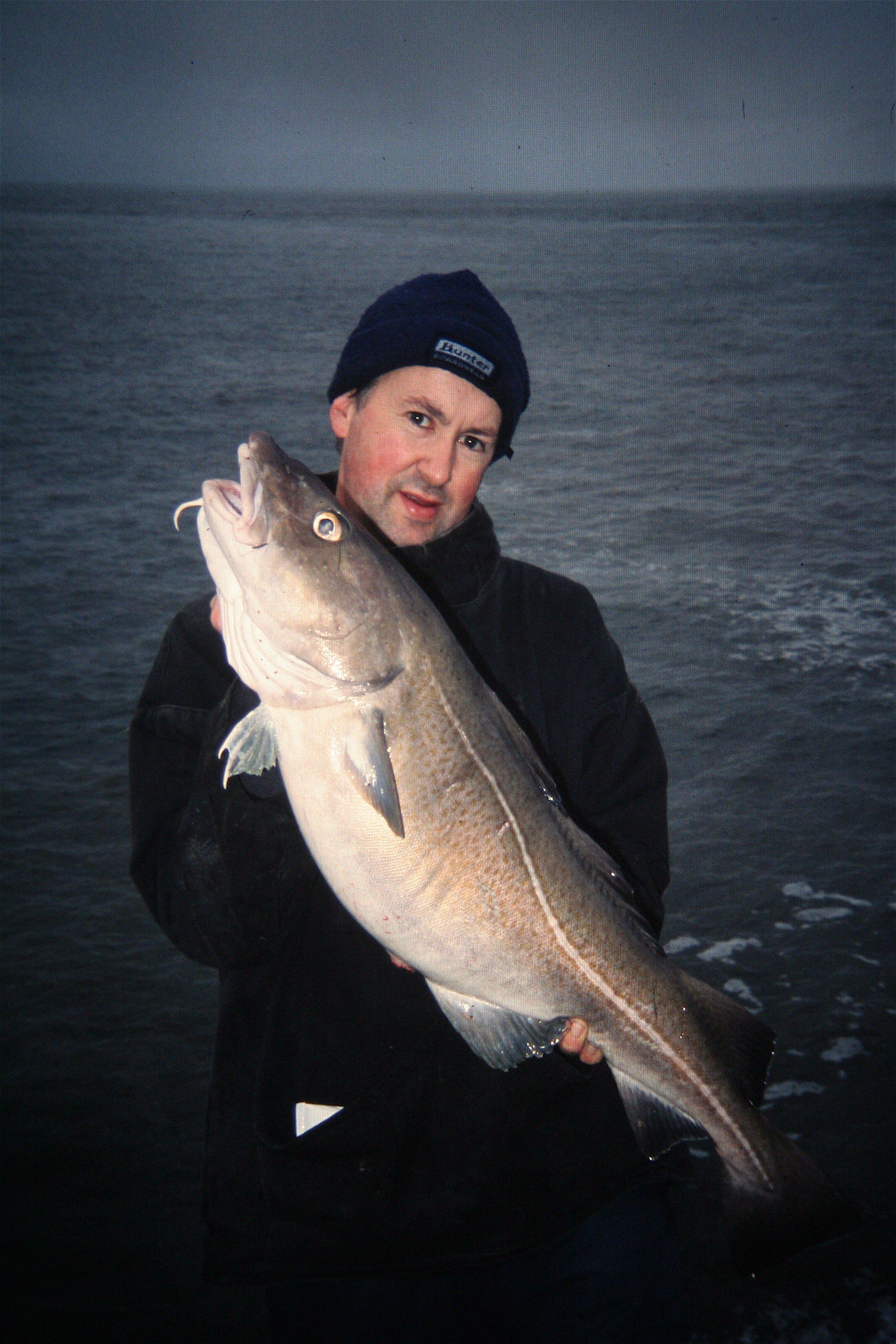
(Above)A shore caught cod from the last century!
Many species of fish have declined with whiting and pouting numbers certainly down on a few decades ago. It would appear that herrings are plentiful along with good numbers of sprats in recent seasons.
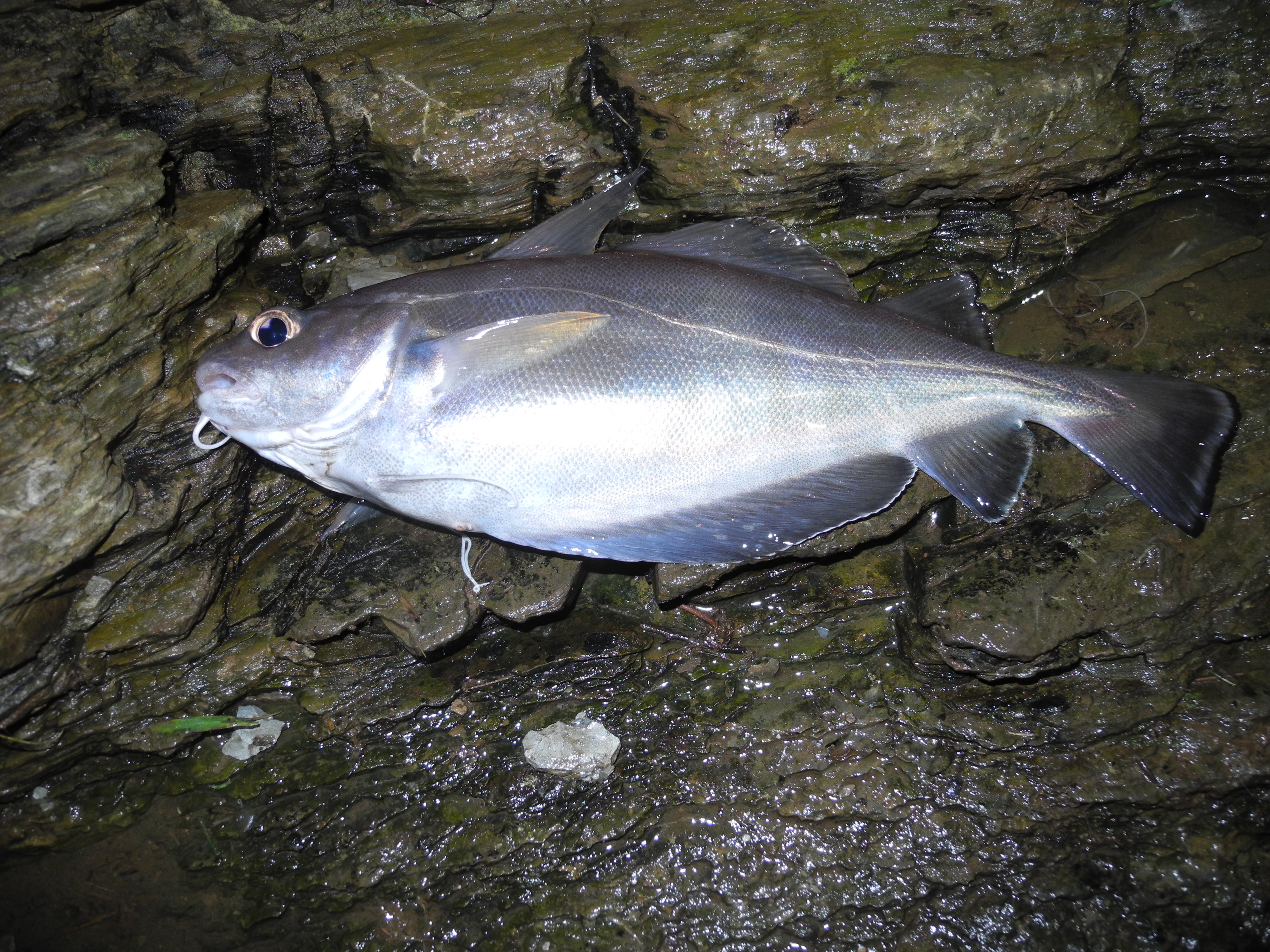
(Above) The humble pouting its numbers have declined.
In our short time on the shoreline it is impossible to get a true picture of the life within our waters. I read a fascinating and thought provoking article on line yesterday; https://www.theguardian.com/commentisfree/2017/dec/20/selective-blindness-lethal-natural-world-open-eyes-environment-ecosystem
An extract follows:- So we forget that the default state of almost all ecosystems – on land and at sea – is domination by a megafauna. We are unaware that there is something deeply weird about British waters; they are not thronged with great whales, vast shoals of bluefin tuna, two-metre cod and halibut the size of doors, as they were until a few centuries ago. We are unaware that the absence of elephants, rhinos, lions, scimitar cats, hyenas and hippos, that lived in this country during the last interglacial period (when the climate was almost identical to today’s), is also an artefact of human activity.
And the erosion continues. Few people younger than me know that it was once normal to see fields white with mushrooms, or rivers black with eels at the autumn equinox, or that every patch of nettles was once reamed by caterpillars. I can picture a moment at which the birds stop singing, and people wake up and make breakfast and go to work without noticing that anything has changed.
I’m not getting any younger; none of us are and I guess that at this time of year we pause to think a little more. As I clambered to the cliff top during a recent session I slumped onto the grassy cliff top. Across Combe Martin Bay a Westerly wind blew and the waves tumbled against the rocks, the damp breeze on my face and salty tang of the sea. The lights of Combe Martin shone brightly and farmstead lights could be glimpsed high on the Northern slopes of Exmoor. It was all so familiar and great to be alive.
There is something fascinating and mystifying about the dark waters and the fish that may be lurking. It is this that draws us to this vast natural amphitheater to connect with nature via a relatively gossamer thread.
There is plenty of pessimism about regarding the state of our seas and their stocks of fish. The evidence I see as an angler is contradictory. I look back and remember the good days whilst the average days get lost in the haze of time. Whilst cod are scarce there is no shortage of dogfish, bull huss, spurdog or conger.
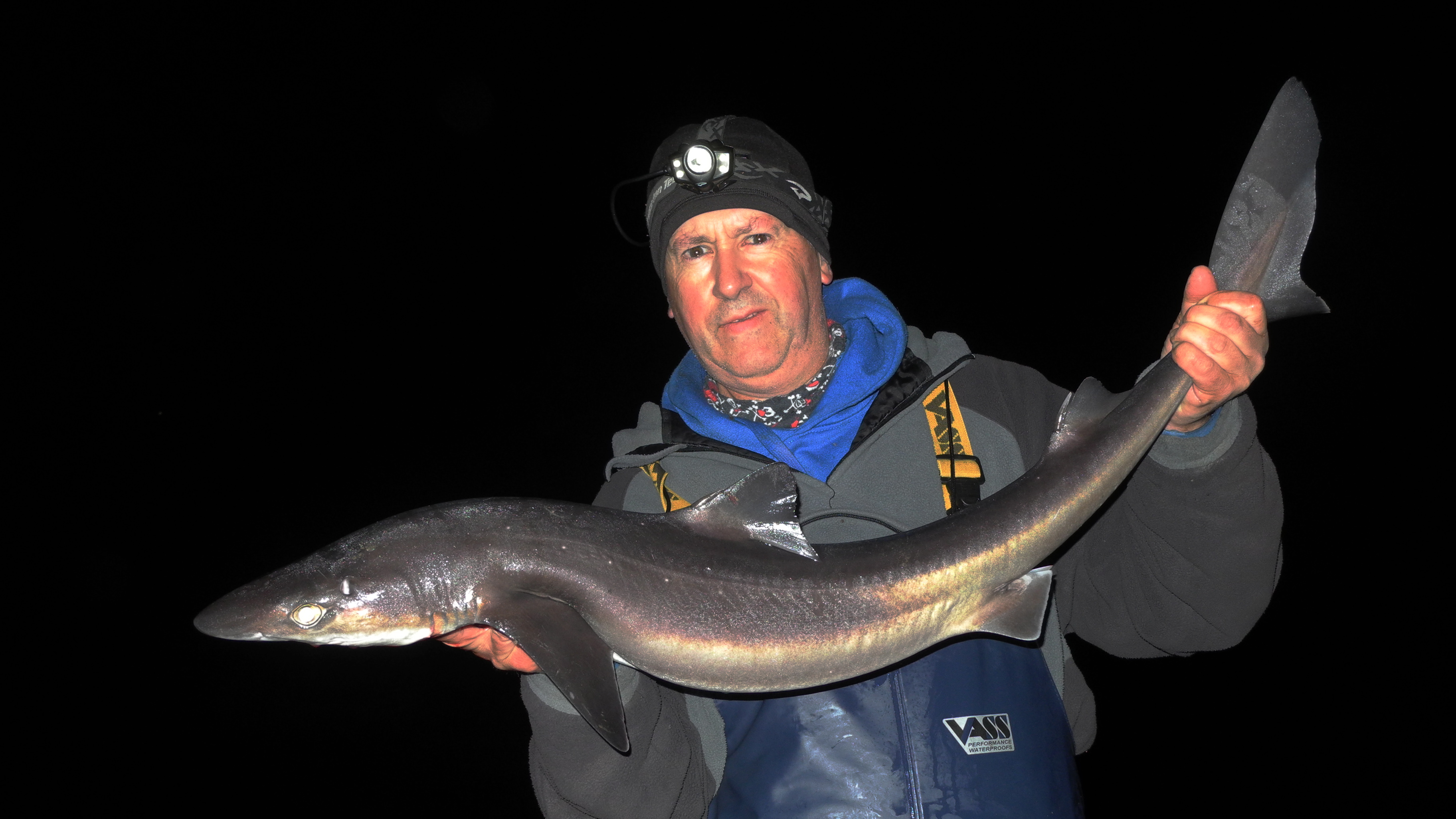
Far out to sea during the warmers months catches of shark are on the up with some spectacular catches of blue shark over recent seasons. Blue fin tuna are once again featuring in catches off the South West. If these mighty fish at the top of the food chain are making a recovery how can things be so bad?
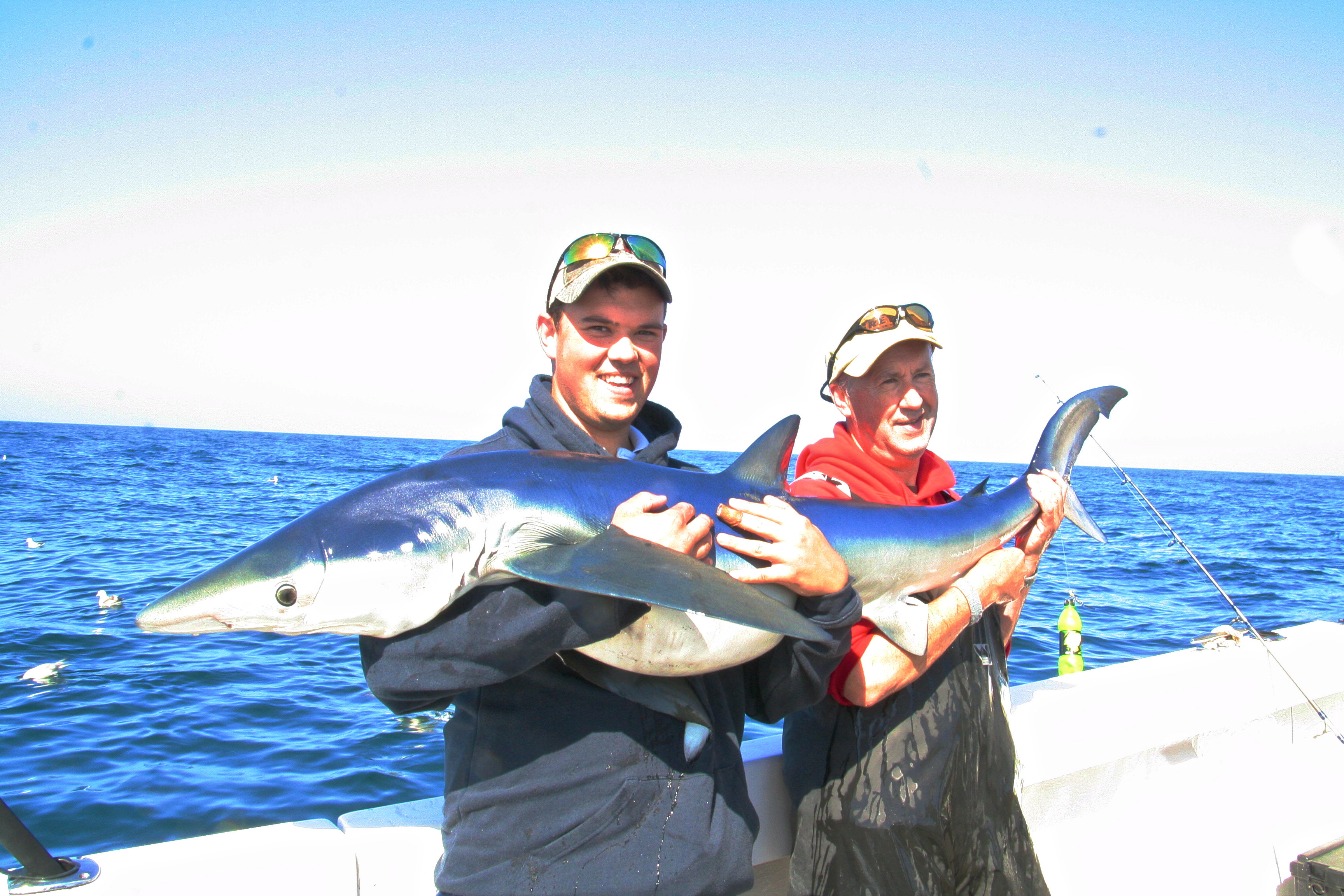
My gut instinct and that of the majority is undoubtedly that the seas are less productive than they once were. I feel for certain that the present generation have inherited a less healthy marine environment than that in which we first cast our lines. Will these be the good old days? Perhaps there is a growing awareness that the seas are not that endless provider of life and that there is much to lose. Will increased awareness and protection of stocks bring a revival in the seas bountiful stocks?

